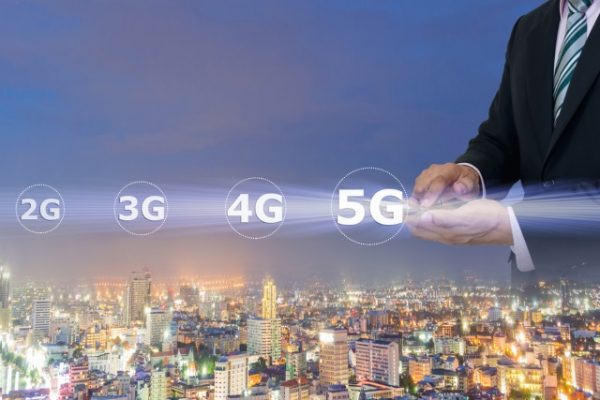Enabling the edge, more IoT devices and more risks -- 5G predictions for 2021

As the worldwide roll out of 5G networks gathers pace, what do industry experts believe will be the opportunities and threats that they will bring?
Verizon Media's chief business officer Iván Markman expects 5G to push more computing to the edge, "As 5G deployment grows across networks, offering much faster data speeds and low-latency, and computing is increasingly done at the edge of the cloud instead of inside a device, it will in turn lead to new form factors for devices as they don't need such huge computing power as they require right now to deliver XR experiences. We have already seen great strides forward in 2020 with live events across music, sports and beyond with new immersive XR experiences for audiences both at home and within venues."
Dan Graham, global product leader, mobile edge computing at WWT, echoes that but also sees 5G as a catalyst for major change;
In 2021, Edge will be critical in creating new revenue streams for network operators, helping offset the costs of executing their 5G strategy. Increasingly, Enterprises are looking towards Edge computing as a solution to help fix business problems, decrease cost, and increase efficiency.
Edge computing is also enabling private mobile broadband to fill in the gaps of geographic coverage, reach latency targets, and support industrial IoT and manufacturing use cases. We’ll also see traditional cloud applications get extended into on-prem or near prem locations to take advantage of the new 5G infrastructure, real-time data processing, and low latency use cases.
5G advances aren't just about deployments, they are about perception change. In 2021 the days of 5G simply being perceived as the next stage of mobile phone connectivity will be over. 5G is a catalyst for brand new enterprise edge use cases and private connectivity which will set the stage for the fourth industrial revolution. Carriers will either meet the demand of these new use cases and support their enterprise customer's digital transformation or will be relegated to costly dumb pipes.
Bill Conner, president and CEO of SonicWall highlights the risks of the new technology, "Despite the potential for 5G to shape the world, it also comes with myriad new cybersecurity risks, such as new types of threats, faster spread and an expanded attack surface. 5G technology is an exciting infrastructure enhancement for an increasingly digital society and will create a platform where innovation can flourish. But reaping the full benefits of 5G will require an understanding of its dangers and how to prevent them -- before cybercriminals learn how to fully master this powerful new tool for themselves."
Mike Riemer, global chief technology officer of Ivanti also expects cybercriminals to exploit the opportunities 5G presents, "The rise in 5G devices and networks will undoubtedly catch the attention of consumers in the coming year, as cellphone carriers such as AT&T look to scale standalone deployment in 2021, and new products such as the iPhone 12 advertise 5G capabilities. The technology is predicted to completely transform the way we work and live by linking numerous aspects of our lives to faster and lower latency networks. The spotlight on this technological revolution will also draw the attention of state-sponsored and other cybercriminals, who will seek to develop sophisticated and aggressive plans of attack that can leverage the increase in network connectivity to carry out ransomware attacks."
5G will put cloud security under more scrutiny says Menlo Security CTO Kowsik Guruswamy, "5G is going to be a huge driver for cloud security as more Internet of Things (IoT) devices go mobile and directly to the cloud. Cloud security has largely seen growth to protect the workforce, but IoT is going to pour rocket fuel on this market. Now cloud security platforms have the vantage point to protect both devices and users. Because of this added element of protection, we will see a greater convergence of security and infrastructure, as we’re already seeing with the acceleration of new and improved architecture such as Secure Access Service Edge (SASE)."
Michael Wood, CMO at Versa Networks thinks secure networks will become more important, "With the adoption of 5G, businesses will rely heavily on technologies such as Secure SD-WAN and SASE to be application aware, deliver inherent security, and become transport agnostic. By doing so, businesses blend their traditional network solutions with their mobile solutions. Secure SD-WAN will simplify management across this expanding 5G footprint, boost security and reliability across on-premise, cloud and the edge, provide flexible network topologies with a fully distributed architecture across the cloud and edge, and leverage application aware routing and intelligent traffic steering. Ultimately, a secure 5G network will provide end-to-end visibility into an application and deliver security and network insights for an organization's mission to digitally transform their mobile-network infrastructure."
Jonathan Reiber, senior director of cybersecurity strategy and policy at AttackIQ says, "5G and IoT will increase the speed of attacks and enable more actors to conduct a wider range of operations against targets globally. According to McKinsey and Company, the number of internet connected devices is projected to increase to 43 billion by 2023. This rise in users coupled with an increase in the Internet of Things (IoT)-connected devices will create a larger attack surface, increasing opportunities for operations and attacks by nation-state and criminal actors alike. With more devices coming online and 5G gaining broader adoption, society will likely become more susceptible to attacks as it will speed up the pace of technical capabilities. Defensive capabilities may also be able to increase in speed, but I think we will see the balance tip in favor of the attacker in the short-term."
Image credit: kung_tom / Shutterstock